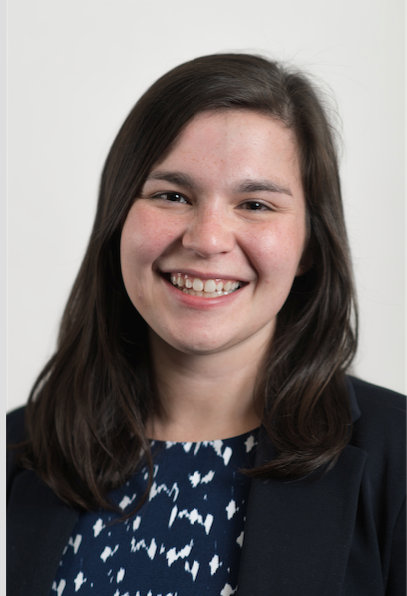Key Takeaways
For over six years, Data Across Sectors for Health (DASH) has worked with communities to build local capacity for multi-sector data-sharing.
Opportunities through DASH can support and provide awareness of the value of sharing data to maximize delivery of comprehensive care for consumers.
Multi-sector data sharing is a trend for community-based organizations to begin to explore in their own communities.
About DASH
The Robert Wood Johnson Foundation’s (RWJF) Culture of Health philosophy and mission is contributing to new possibilities to improve health care delivery. A crucial component of the Culture of Health is fostering connection and cooperation among health-related and community services sectors to enhance the delivery of efficient and equitable health care. To that end, the Foundation, in conjunction with the Illinois and Michigan Public Health Institutes (IPHI and MPHI), launched Data Across Sectors for Health (DASH) to address the potential barriers and opportunities in connecting information systems and data-sharing across sectors. For over six years, DASH has worked with communities throughout the country to build local capacity for multi-sector data-sharing, while at the same time, building the evidence base to inform a national movement. IPHI and MPHI serve as the RWJF National Program Office (NPO) for DASH. Clare Tanner, MPHI and Elissa Bassier, IPHI, serve as co-directors of the NPO.
What led to the creation of DASH?
Tanner shared that DASH was created because RWJF was interested in creating a broader opportunity for local collaboration on data sharing. This initiative goes beyond some of the tenets of federal data-sharing provisions like the HITECH Act and includes community and public services agencies. These programs seek to build trust and collaboration across multiple sectors and underscore that comprehensive client data should include both health and social needs information.
The goal of the program is to discover and disseminate well-developed, sustainable examples of integrated alignment, and highlight the critical role of data sharing among multiple sectors. DASH aims to:
- Address locally determined problems or goals associated with better community health;
- Enhance communities’ abilities to plan, make decisions, implement health improvement activities through sharing data and information in a sustainable way; and
- Identify methods, models, and lessons that can be applied locally and shared with other communities seeking to improve the ability to share data and information across sectors.
DASH is aligned with several RWJF-supported strategies to bridge health and health care, including Aligning Systems for Health led by the Georgia Health Policy Center.
Who is participating?
Scores of community-based and public health organizations, health care institutions, and government entities have participated in DASH-supported initiatives over the last six years including the Greater Dayton Area Hospital Association, the Camden Coalition, Harlem United, The Maine Council on Aging, and Minneapolis Public Housing Authority among others. Tanner explained that engagement from such a diverse group of organizations offers these entities an opportunity to learn up-close about their common challenges and opportunities, and build understanding of the values proposition for data sharing from various sector-based perspectives.
DASH is a multi-faceted, comprehensive program that works to develop local capacity, solidify the evidence base, build the movement, and influence policy and systems change to support multi-sector data sharing.
-Anna Barnes, Program Director for IPHI’s Center for Health Information Technology, DASH NPO Staff
DASH offers a variety of funding opportunities, including the DASH Mentorship program, Community Impact Contracts - Strategic, Timely, Actionable, Replicable, Targeted (CIC-START now CIC-COHORT) Initiative, and the Learning and Action in Policy and Partnerships (LAPP) grant.
DASH Mentor is a 10-month program that pairs emerging community collaborations, or Mentees, with seasoned leaders that provide 1:1 coaching and advanced technical assistance. Mentors also lead smaller cohorts in a forum for peer learning, troubleshooting, and discussion. This program supports up to seven cohorts and includes up to 40 Mentee organizations spread across the Mentor-led cohorts.
CIC-START strives to support local collaborations in catalyzing their efforts to share and use multi-sector data to improve community health.
- Clare Tanner, Director, MPHI
How it worked at the Maine Council on Aging
The Maine Council on Aging (MCOA), led by Jess Mauer, was the recipient of a 2020 CIC-START award. Under their grant, the MCOA developed a municipal data dashboard to track unmet needs of older adults in South Portland, Maine. The stakeholder engagement process was coordinated in conjunction with the statewide Health Information Exchange (HIE). It included planning for the development of a Community Information Exchange to serve as a pilot for similar efforts around the state. Participants learned key lessons from the project around developing priority metrics, analyzing aggregated data sets, and generating actionable insights through virtual meetings and relentless relationship building across a variety of sectors.
MCOA expanded the project into other Maine communities. As stakeholder members, Healthy Living for Maine (HL4ME) and Spectrum Generations are working with others on the community dashboard project deployed in the community of Hallowell. Kristin Overton, Chief Operating Officer at Healthy Living for ME (HL4ME) and Katie Carlson, Director of Community Outreach at Spectrum Generations, discussed their experience. HL4ME, a statewide community-integrated health network, and Spectrum Generations are leaders in providing services to older Americans including myriad evidence-based programs. Carlson explained that Hallowell is a small community with just over 2,500 residents in central Maine near Augusta. The township leaders sought to mobilize better integration of various service provider supports for its older residents. Their mission was to utilize the MCOA dashboard design to better understand and meet the needs of Hallowell’s older adult population.
The Hallowell township leaders were advocating for an age-friendly community agenda and coordination of services between various services providers, housing authorities, EMS, public safety, public health, Dartmouth Geriatric Clinic and senior services organizations like Spectrum Generations.
- Kristin Overton, Chief Operating Officer, HL4ME
The pandemic highlighted the absence of a single data source for senior needs assessments and senior services. Overton believes that the project’s value will resonate throughout the state’s aging network and support increased efficiency, coordination, and improved member experience.
About All In: Data for Community Health
DASH also co-leads All In: Data for Community Health, a nationwide learning collaborative that helps communities build capacity for multi-sector data-sharing collaborations by leveraging the knowledge in the room. Collectively, All In includes over 200 community collaborations across the country. All In hosts webinars, a national meeting, an online platform with a member directory, an events calendar, resource repository, discussion open forums, and more.
Currently, All In is launching affinity groups that will be participant-led and facilitated by subject matter experts to support activities designed to explore topics of interest, facilitate connections, educate, and share resources. Topics will include community health dashboards, technology solutions for care coordination and closed-loop referrals, and centering measures in community voice.
Through DASH, RWJF is providing much-needed assistance to community collaborations seeking support for more sophisticated data management systems. Clare Tanner mentioned that one of the projects on their radar in 2021 is the implementation of a nationwide study to learn more about community-based organizations in multisector data-sharing initiatives that impact equity and engagement.
Look out for future opportunities with DASH and All In
These kinds of programs represent important breakthroughs in support of integrated service coordination among multi-sector organizations to improve health care, quality of care, access, and efficiency. This is a significant opportunity for community-based organizations to develop their data connectivity, identify and collaborate with partners, and build a stronger path to sustainable community programming.
Scheduling for the 2021 DASH awards is pending. Interested organizations should consult the DASH website for more details. Financial awards for the DASH funding programs discussed in this Brief:
- CIC-COHORT: 25,000
- DASH Mentor Program: $5,000-$10,000











